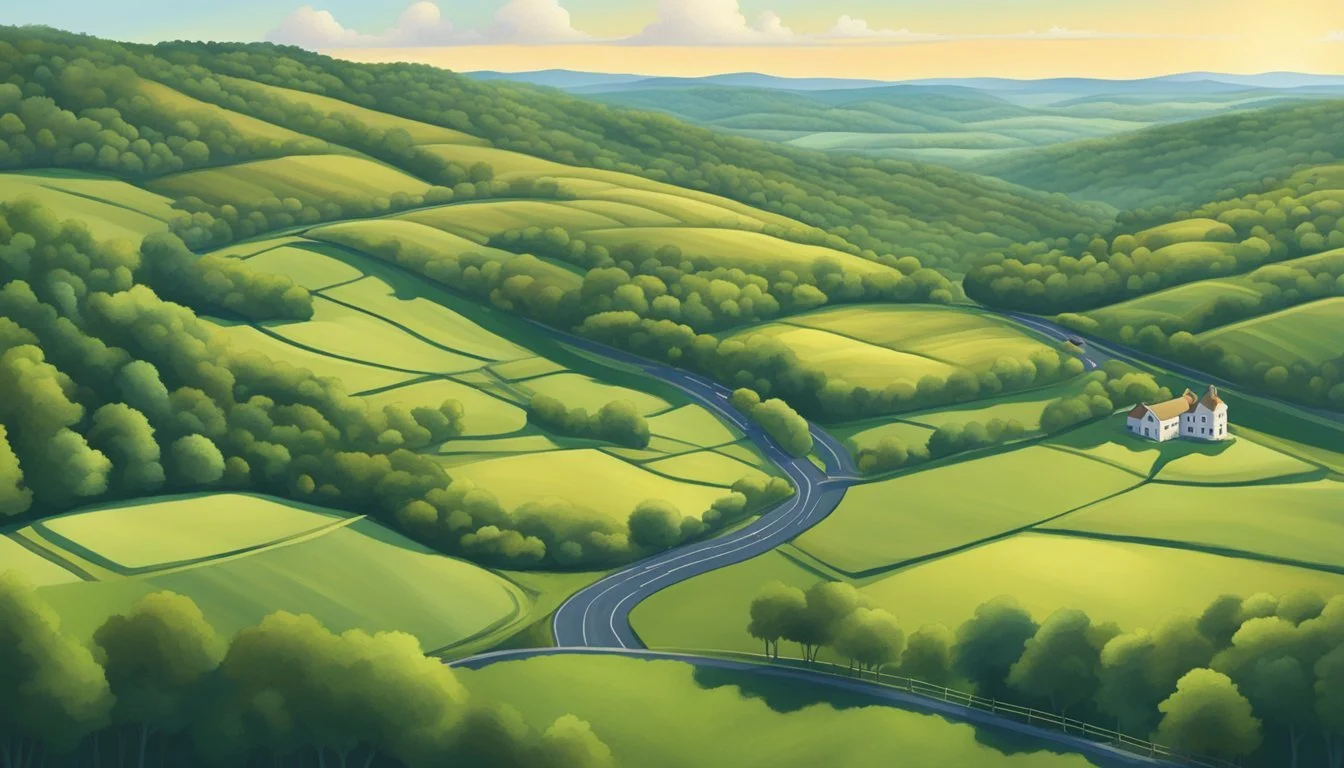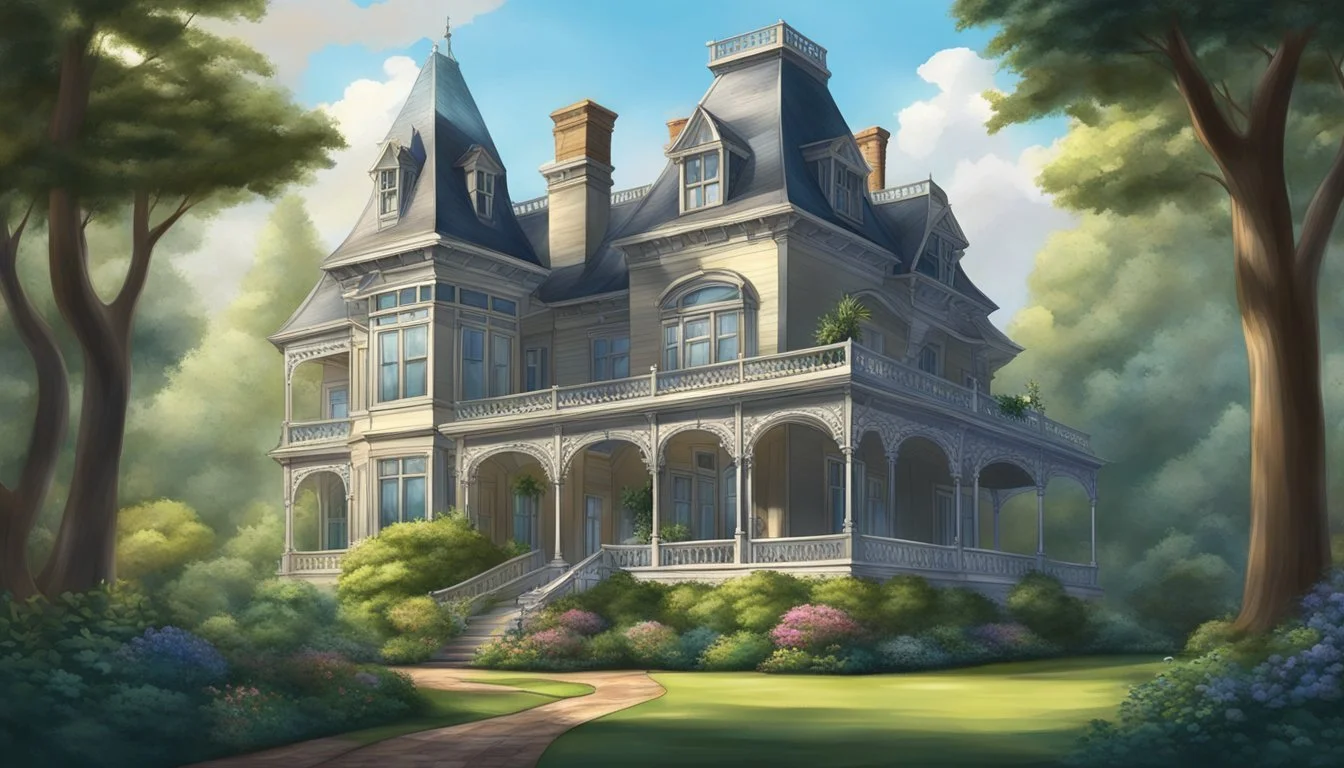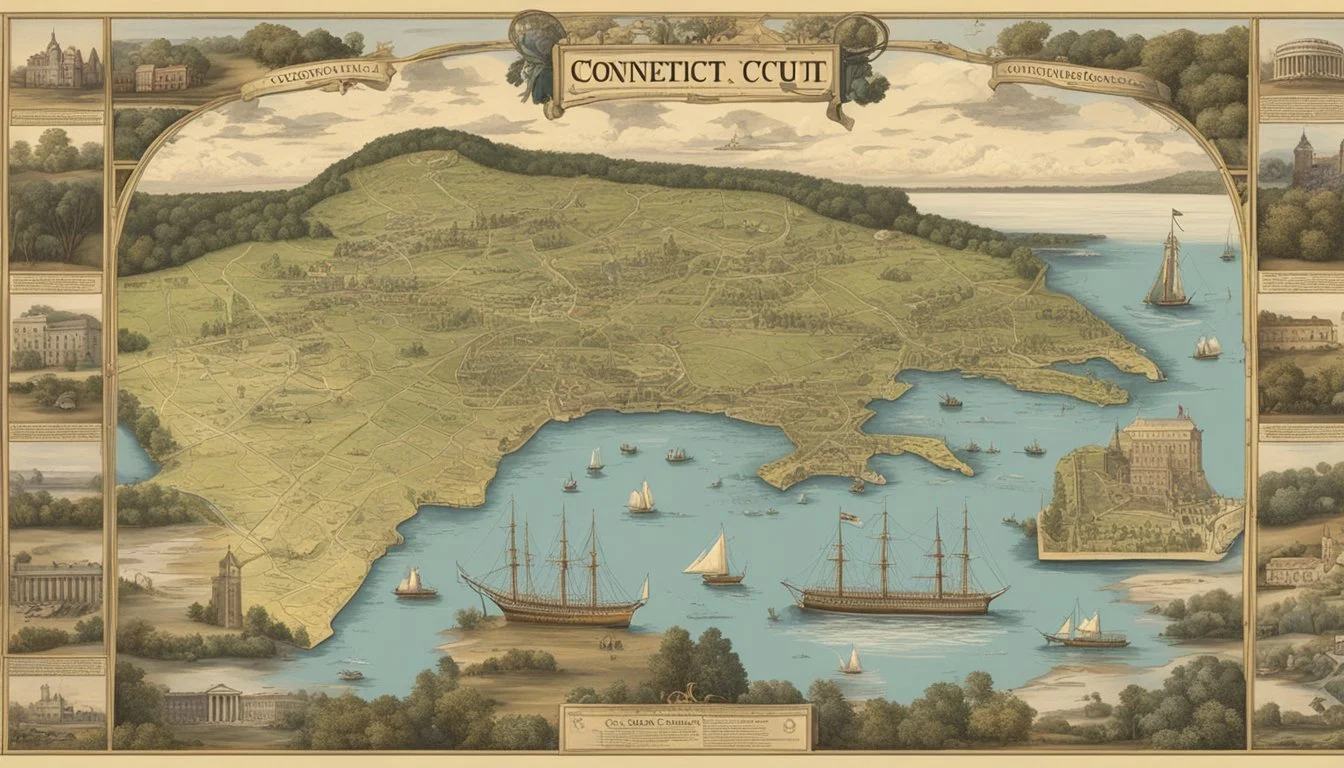8 Fascinating Documentaries About Connecticut
Exploring the Nutmeg State's Hidden Stories
Connecticut's rich history and diverse landscapes have made it a captivating subject for documentary filmmakers. From its revolutionary past to its modern innovations, the Constitution State offers a wealth of stories waiting to be told through the lens of talented documentarians.
These eight fascinating documentaries about Connecticut shed light on the state's unique culture, influential figures, and pivotal moments that have shaped its identity. Viewers can expect to gain new insights into Connecticut's role in American history, its natural beauty, and the remarkable individuals who have called it home. Each film offers a distinct perspective on the state, exploring topics ranging from industry and innovation to art and social issues.
1) "The Trials of Ted Bundy"
"The Trials of Ted Bundy" is a gripping documentary that explores the legal proceedings against one of America's most notorious serial killers. The film delves into the complex case that captivated the nation in the late 1970s.
Ted Bundy's trials took place across multiple states, including Florida where he faced charges for the Chi Omega sorority murders. The documentary showcases the intense courtroom drama and Bundy's decision to act as his own attorney.
Viewers gain insight into the prosecution's strategy and the compelling evidence presented against Bundy. The film also highlights the media frenzy surrounding the trials and its impact on public perception.
Expert testimonies, including that of forensic psychologists, are featured prominently in the documentary. These professionals provide analysis of Bundy's behavior and mental state during the proceedings.
The documentary examines the role of emerging DNA technology in strengthening the case against Bundy. It also explores the lasting impact of these trials on the American justice system and public awareness of serial killers.
2) "The Ghosts of New London"
"The Ghosts of New London" explores the haunting legends of Connecticut's historic seaport. This documentary sheds light on the city's rich maritime past and the spectral tales that have emerged over centuries.
The film takes viewers on a journey through New London's most notorious haunted locations. It features interviews with local historians, paranormal investigators, and longtime residents who share their eerie experiences.
One highlight is the investigation of the Pequot Chapel, where visitors claim to hear mysterious footsteps and see shadowy figures. The documentary also examines the legends surrounding Captain Kidd's treasure and the ghostly activity reported near the New London Harbor Lighthouse.
Viewers learn about the city's role in the Revolutionary War and how these events may have contributed to the reported hauntings. The film presents historical context for each location, blending factual information with eyewitness accounts of supernatural occurrences.
"The Ghosts of New London" offers a balanced perspective on the city's paranormal reputation. It encourages viewers to draw their own conclusions about the existence of ghosts while appreciating New London's fascinating history.
3) "Connecticut Carnival Memories"
"Connecticut Carnival Memories" captures the nostalgic charm of the state's vibrant fairground culture. The documentary explores the rich history of carnivals and fairs that have entertained generations of Connecticut residents.
Viewers are transported back in time through archival footage and photographs of iconic events like the Durham Fair and the Danbury State Fair. The film showcases the evolution of carnival attractions, from classic rides to modern thrill experiences.
Interviews with longtime carnival workers and attendees provide personal anecdotes that bring the memories to life. Their stories paint a vivid picture of the sights, sounds, and smells that have defined Connecticut's carnival scene.
The documentary also delves into the economic impact of these events on local communities. It examines how carnivals have supported small businesses and charitable organizations throughout the state's history.
"Connecticut Carnival Memories" preserves an important aspect of the state's cultural heritage. By documenting these beloved traditions, the film ensures that future generations can appreciate the joy and excitement of Connecticut's carnival past.
4) "Mysteries of the Mark Twain House"
"Mysteries of the Mark Twain House" explores the enigmatic history of Samuel Clemens' Hartford home. The documentary examines unexplained phenomena reported by staff and visitors over the years.
Investigators use modern technology to search for evidence of paranormal activity within the 19th-century mansion. Cameras capture potential ghostly apparitions in various rooms, including Twain's study.
The film delves into the tragic events that occurred in the house, such as the death of Twain's daughter Susy. It considers how these experiences may have influenced the author's later works.
Architectural experts discuss the home's unique design features and hidden spaces. They reveal secret passages and concealed rooms that add to the property's mystique.
Historians provide context about Twain's time in Hartford and his family life. The documentary examines how the author's personal struggles and financial troubles impacted his relationship with the house.
Preservationists share insights into the ongoing efforts to maintain and restore the historic property. They highlight the challenges of balancing authenticity with modern conservation techniques.
5) "The Witch Trials of Connecticut"
"The Witch Trials of Connecticut" explores a dark chapter in the state's colonial history. The documentary examines the witch hunts that took place in Connecticut between 1647 and 1697.
Viewers learn about key figures involved in the trials, including Alice Young, the first person executed for witchcraft in the American colonies. The film details the accusations, trials, and punishments faced by those suspected of practicing witchcraft.
Expert historians provide context for the social and religious climate that fueled the witch hunt hysteria. The documentary uses reenactments and archival materials to bring the events to life.
The film also explores the lasting impact of the trials on Connecticut's history and culture. It examines how perceptions of the events have changed over time and efforts to commemorate the victims in recent years.
"The Witch Trials of Connecticut" offers a compelling look at a lesser-known aspect of early American history. It provides valuable insights into the fears and beliefs that shaped colonial society in the 17th century.
6) "A Journey Through Mystic Seaport"
"A Journey Through Mystic Seaport" showcases the largest maritime museum in the United States. The documentary explores the 19-acre museum grounds located in Mystic, Connecticut.
Viewers are taken on a tour of the museum's impressive collection of sailing ships and boats. The film highlights the Charles W. Morgan, the last wooden whaleship in the world.
The documentary delves into the museum's recreated 19th-century coastal village. It features over 60 historic buildings, staffed by knowledgeable interpreters dressed in period clothing.
Artisans demonstrate traditional maritime skills, including shipsmithing, coopering, and sailmaking. The film captures these craftspeople at work, preserving techniques from the Age of Sail.
"A Journey Through Mystic Seaport" also examines the museum's efforts in maritime preservation and education. It showcases the museum's research facilities and educational programs for visitors of all ages.
The documentary provides a comprehensive look at Mystic Seaport's role in preserving America's maritime heritage. It offers viewers a unique glimpse into the seafaring history of Connecticut and New England.
7) "The History of Yale University"
Yale University, founded in 1701, stands as one of America's oldest and most prestigious institutions of higher learning. Originally established as the Collegiate School in Killingworth, Connecticut, it later moved to New Haven in 1716.
The university was renamed Yale College in 1718 to honor Elihu Yale, a Welsh merchant who donated books and goods to the school. Over the centuries, Yale has grown from a small college into a world-renowned research university.
Yale's history is marked by significant milestones. In 1861, it became the first university in the United States to award a Ph.D. degree. The institution also played a crucial role during the American Revolution, with many of its graduates serving as leaders.
Throughout its existence, Yale has educated numerous influential figures, including five U.S. Presidents, 19 U.S. Supreme Court Justices, and many other notable individuals across various fields. The university's commitment to excellence in education and research has solidified its position as a global leader in academia.
Yale's campus architecture reflects its rich history, with a mix of Gothic Revival and modern buildings. The university continues to evolve while maintaining its strong traditions and commitment to academic excellence.
8) "The Amistad Rebellion Documentary"
"The Amistad Rebellion Documentary" chronicles the historic 1839 uprising of enslaved Africans aboard the Spanish schooner La Amistad. The film explores the events that unfolded off the coast of Cuba and the subsequent legal battle in Connecticut.
The documentary details how the captives, led by Sengbe Pieh, seized control of the ship. It recounts their journey along the eastern seaboard before being captured near Long Island, New York.
Viewers learn about the captives' imprisonment in New Haven, Connecticut, and the ensuing trial. The film highlights the involvement of former President John Quincy Adams in defending the Africans' right to freedom.
Through interviews with historians and reenactments, the documentary brings to life the complexities of the case. It examines the legal arguments presented and the societal tensions surrounding slavery in 19th-century America.
The film also delves into the cultural impact of the Amistad rebellion. It discusses how the event influenced the abolitionist movement and shaped public opinion on slavery.
"The Amistad Rebellion Documentary" provides a compelling look at this significant chapter in Connecticut's history. It offers insights into the legal, moral, and social issues of the time.
Connecticut's Scenic Landscapes and Cultural Impact
Connecticut's diverse landscapes and rich history have profoundly shaped its cultural identity. From rolling hills to coastal shores, the state's natural beauty intertwines with centuries of human influence.
Historic Significance
Connecticut's history dates back to pre-colonial times, with Native American tribes leaving their mark on the land. The state played a crucial role in the American Revolution, hosting key battles and strategic meetings. Historic sites like Putnam Cottage in Greenwich offer glimpses into this revolutionary past.
Many towns preserve their colonial-era architecture, creating picturesque streetscapes. Litchfield stands out for its well-maintained historic district. These preserved areas allow visitors to step back in time and experience Connecticut's roots firsthand.
Cultural Diversity
Connecticut's culture reflects waves of immigration and societal changes over centuries. Urban centers like Hartford and New Haven showcase this diversity through cuisine, festivals, and arts scenes.
Rural areas maintain distinct traditions, often blending agriculture with tourism. The Salmon River Scenic Byway exemplifies this mix, offering natural beauty alongside working farms.
Connecticut's arts scene thrives in unexpected places. Small towns host renowned theaters and museums, while coastal communities like Mystic blend maritime heritage with contemporary culture. This cultural tapestry makes Connecticut a unique destination for both residents and visitors.
Influential Figures and Events in Connecticut
Connecticut has been home to many notable individuals who have shaped American history, culture, and innovation. The state has also witnessed significant events that have left lasting impacts on its development and character.
Notable Personalities
Mark Twain, one of America's most beloved authors, lived in Hartford for two decades. His home, now a museum, stands as a testament to his literary legacy. Harriet Beecher Stowe, author of "Uncle Tom's Cabin," resided in Connecticut and played a crucial role in the abolitionist movement.
Noah Webster, creator of the first American English dictionary, was born in West Hartford. His work standardized American spelling and pronunciation. Igor Sikorsky, the aviation pioneer who developed the first practical helicopter, established his company in Stratford.
Landmark Events
The Connecticut Compromise of 1787, proposed by Roger Sherman, resolved a major dispute in the Constitutional Convention. This agreement established a bicameral legislature, balancing representation between large and small states.
The Charter Oak incident in 1687 became a symbol of American independence. When King James II attempted to revoke Connecticut's charter, colonists allegedly hid it in a large oak tree to prevent its seizure.
The first submarine in history to sink an enemy ship, the USS Housatonic, was built in Connecticut during the Civil War. This event marked a significant advancement in naval warfare technology.




